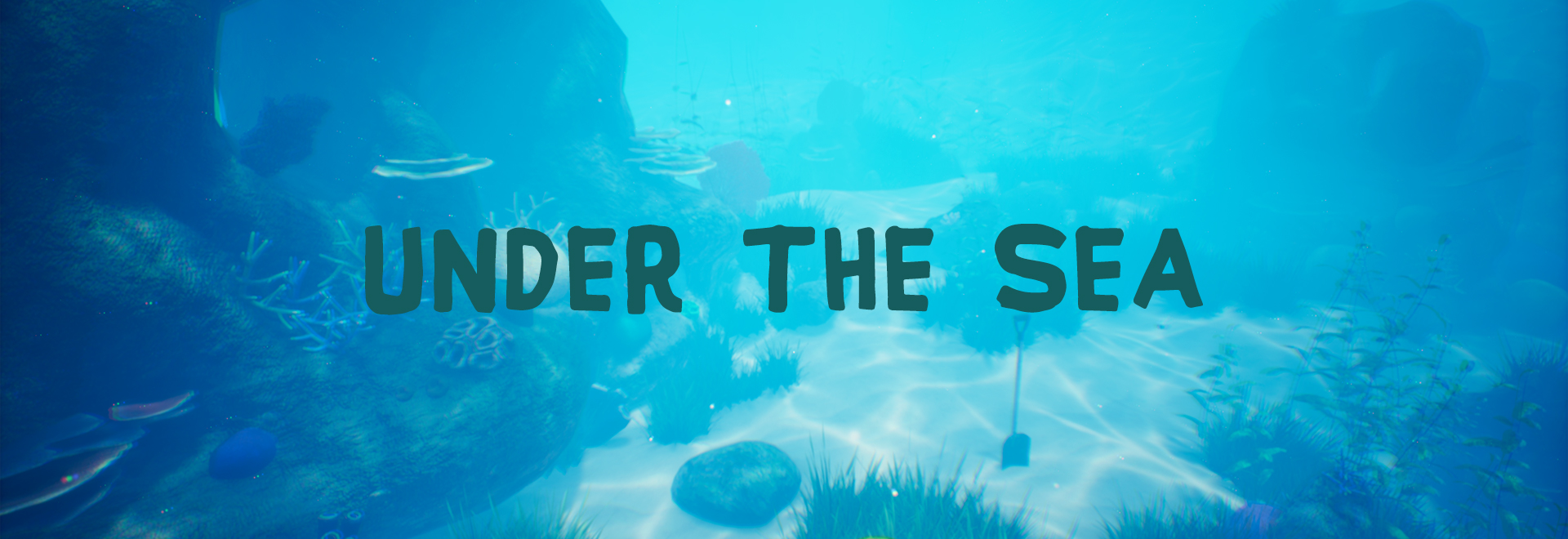Alex Haining:
BSc (Hons) Digital Media - Honours Project
1st Class Honours
Winner of the University Medal.
Winner of best knowledge transfer related project award.
- Virtual Reality, an Instrument for Conservation Thesis -
- Design and Development Report -
- Evaluation and Review Report -
Thesis abstract:
Virtual Reality, an instrument for conservation:
What is the impact of climate change on the marine coral ecosystem & how to educate the user?
Can virtual reality save our ecosystem? Using a VR environment to educate upon the coral ecosystem and the effects of climate change. This should be achieved through an interactive time-lapse to show the stages of damage and show if action is taken to stop climate change, these effects can be reversed. This piece’s purpose is to educate the user with visual learning and give an empathetic insight into the user’s motivations by using virtual reality as a means of conservation.
Under the Sea
I was looking into using virtual reality for a coral ecosystem and its issues with climate change. Scientist and marine biologist predict by the year 2050 90% of coral reefs will perish globally because of the effects of climate change, reefs are home to 25% of all marine life. The effects would be catastrophic if steps for prevention aren't taking soon and action needs to be taken now. During my research dissertation, I reported one of the strongest ways to invoke change in someone (a user) would be to educate the person about the topic. I believe the best way to teach another is to put the user at the centre of the situation. Virtual storytelling would be the key.
I've designed a VLE (Virtual learning environment) for UE4 which works with the HTC Vive for motion control, the purpose of this product is to allow others to interact with the marine coral environment. The very nature of the issue is regarding the potential of VR as a tool for education and conservation which is represented by raising awareness of climate change on coral reefs.
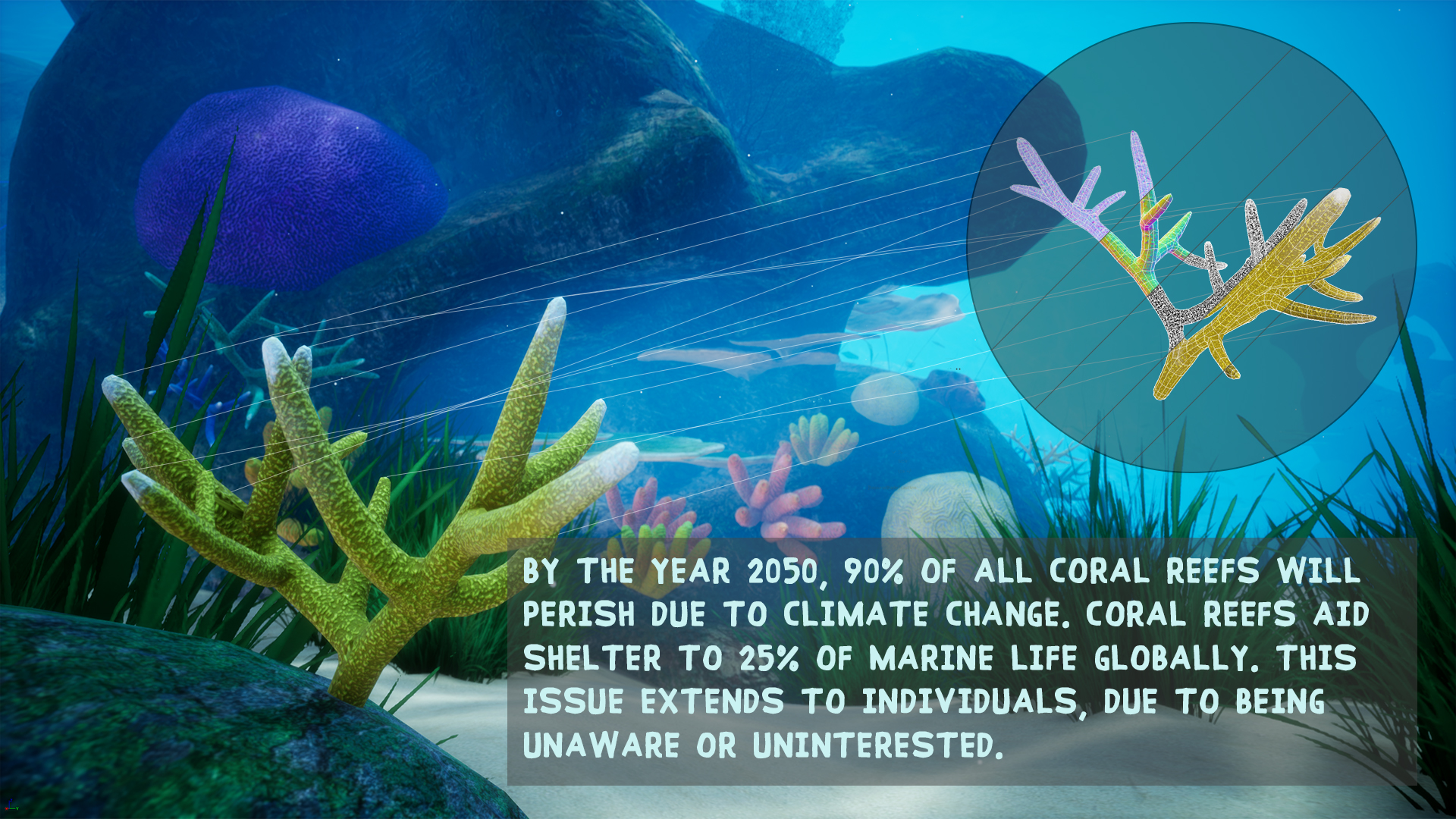
Project Aims and Outcomes
- Conduct a literature review to examine the practice and potential of virtual reality. With respect to the trajectory of current trends and limitations for utilisation in VLE’s.
- Conduct tests on different work-flows related to game environments and the potential of photogrammetry (With practicality to asset creation). Gain research and collaboration from marine biologist to secure information of the coral ecosystem.
- Create a functioning VLE from the knowledge gained to raise awareness of the marine coral reef.
- Consider the data collected, cross reference feedback from participants before and after using the VLE to triangulate its benefits that can be presented to local authorities.
- Draw conclusions that measure the outcome of best practise and recommendations for future research.
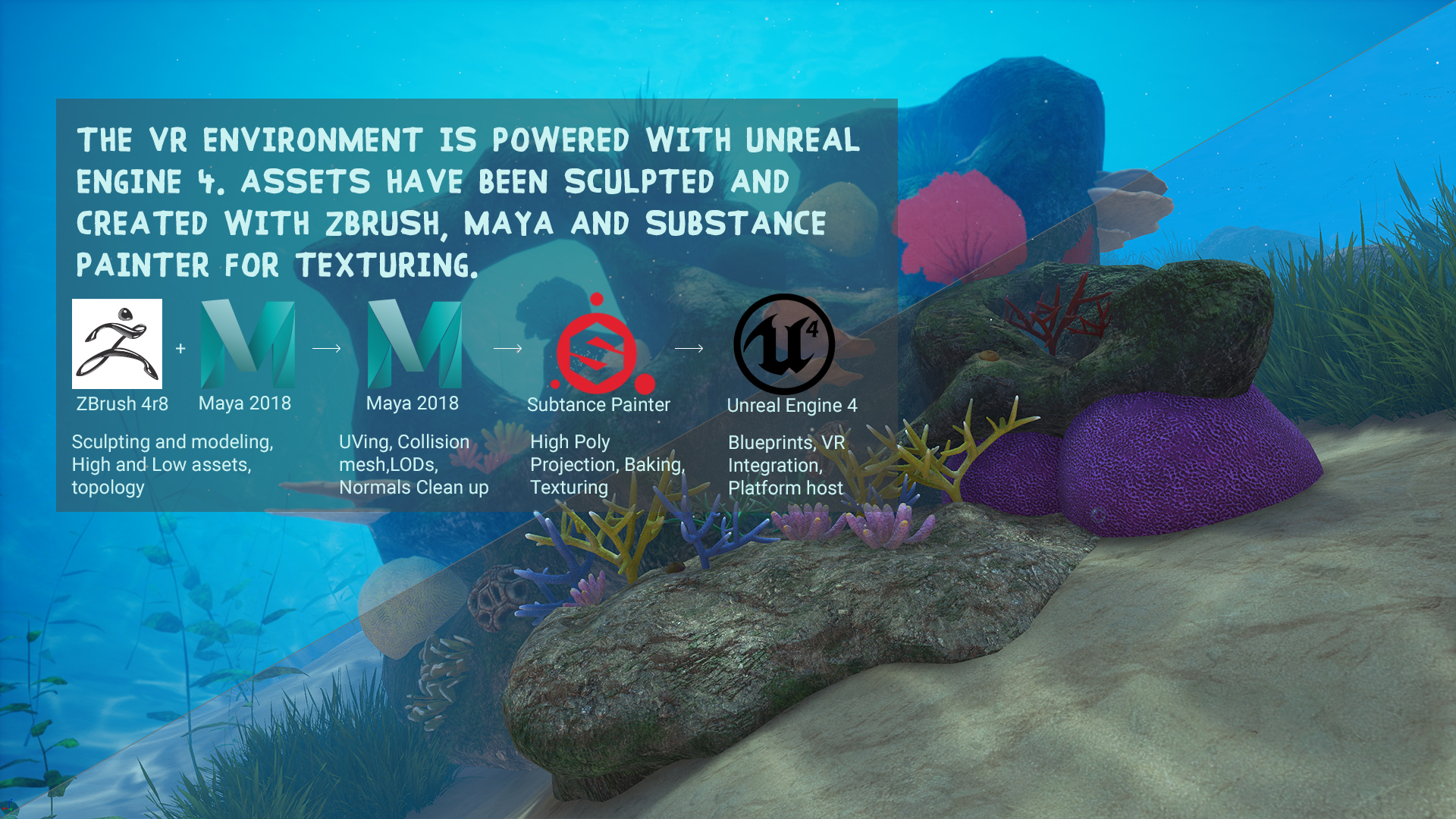
What's the issue with Coral?
- Greenhouse gases (GHC) rise from pollution and waste, This gas is any gas in the atmosphere that absorbs and emits radiation which heats up the earth's surface.
- Coral lives by keeping algae inside its body called Zooxanthellae, they usually live well together and share a symbiotic relationship. The algae get a safe place to live inside the coral, and the coral gets a share of the food that the algae produce.
- When the sea/water becomes warmer it causes the coral to stress. If the water temperature is too warm the algae produce toxic substances, the coral then expels the algae out to try and protect itself, which causes the bleaching effect.
- If the water returns to a more suitable temperature within a week or two the coral can then take the algae back inside its body and continue to live as if nothing happened. Which is apart of the coral bleaching cycle.
- The issue we have is that sea temperatures are rising for long periods of time, which results in coral death, bleaching cycles are also much more common now, so there is not enough time for the coral to grow and recover in between bleaching events
- Although warming is the main issue for coral there are also other factors, another big factor from greenhouse gases is acidification which contributes to coral stress. With current CO2 emission trends, there's a prediction that all tropical corals will be lost by 2100.
- However, we can still prevent this from happening if we can reduce our greenhouse gases! So the choices made today will shape the future of our reefs.
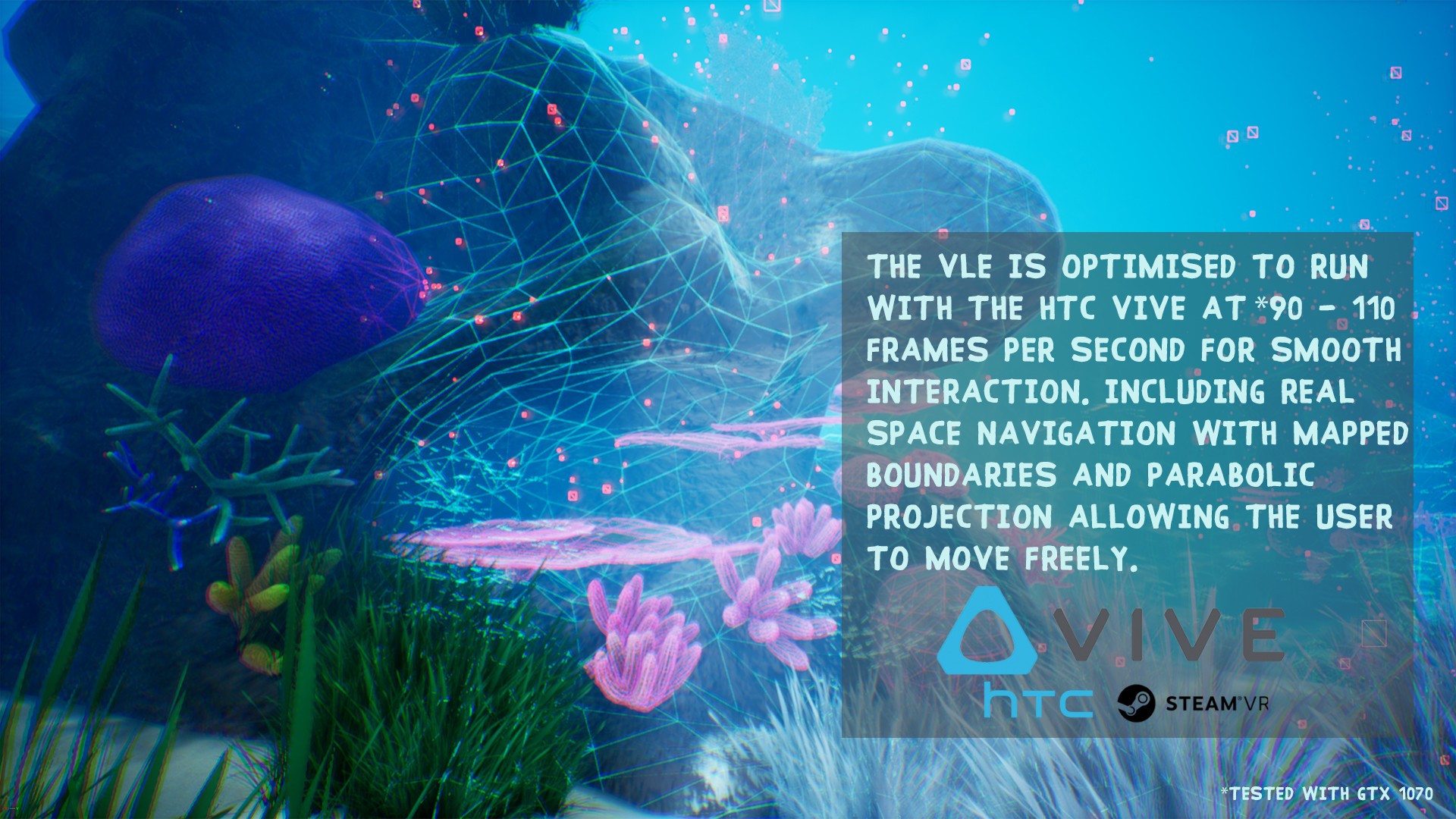
A coral reef Virtual Learning Environment (VLE)
This is more than just a virtual learning environment. This is an experience.
Most of us can barely pay attention to a white/smart board for more than 10 minutes or pay attention to other forms of learning in that regards. We always find a way to tune ourselves out of existence and cast our minds to other planes of our imagination. But what if our imaginations or escapes could be our platform for learning instead. I believe VR could hold the potential for a life-changing experience or at very least open one's mindset.
The Chinese philosopher Confucius said “Tell me, and I will forget. Show me, and I may remember. Involve me, and I will understand." Confucius, circa 450BC
I believe this quote stands strong today. If we only show people, we are not giving them the full experience, they might remember but will they take action ? is it enough to see something and get a positive response? We see media every day, on the television, in the high street, at work, but do we feel compelled to act upon it? For most of us, no. Change happens through experiences, be negative or positive as humans we make changes based on our own experiences.
Virtual Reality (VR) could be the key. VR has great potential transport us anywhere our imaginations can take us. VR-based environments offer users new tangible ways of interaction through virtual objects and a flexibility towards learning. This dynamic experience can be the answer to make a stronger effect over traditional methods of teaching and creating a stronger emotional impact to act upon. If we use that keyword, involve, I believe that yes there is potential for someone to act upon rather than to show someone.
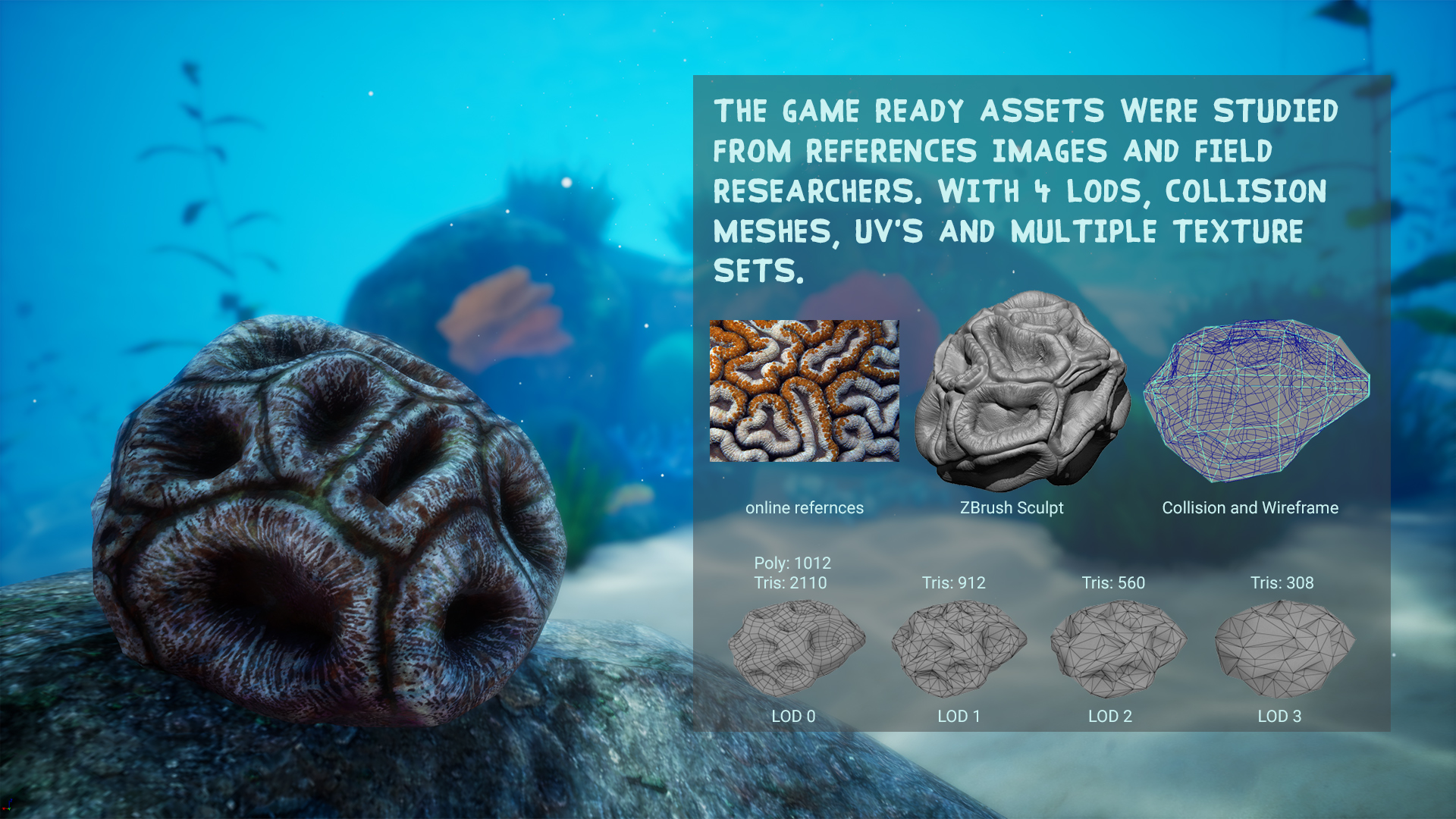
Why should we care?
Really, why should you care?
Even though we all have different backgrounds and particularly this audience will mostly be readers within the creative industry. We all share the same Earth which we call home, the death of coral reefs would only be the start, with severe knock-on effects to follow. We can already experience these effects with the Great Barrier Reef as marine habitats are disappearing from their spawning grounds. These coral reefs offer protection to prey and would create a negative impact on marine life, exacerbating the issue further, particularly with feeding groups.
See the reef in action!
More?
Poster
A poster that was used to orally defend and present the work:
- A1 Honours Poster -
Blog
The blog gives a deeper insight into my thoughts and the process involve in the production pipeline:
- Save our Coral -
- Under the Sea -
- In Rust we Trust -
More coming soon
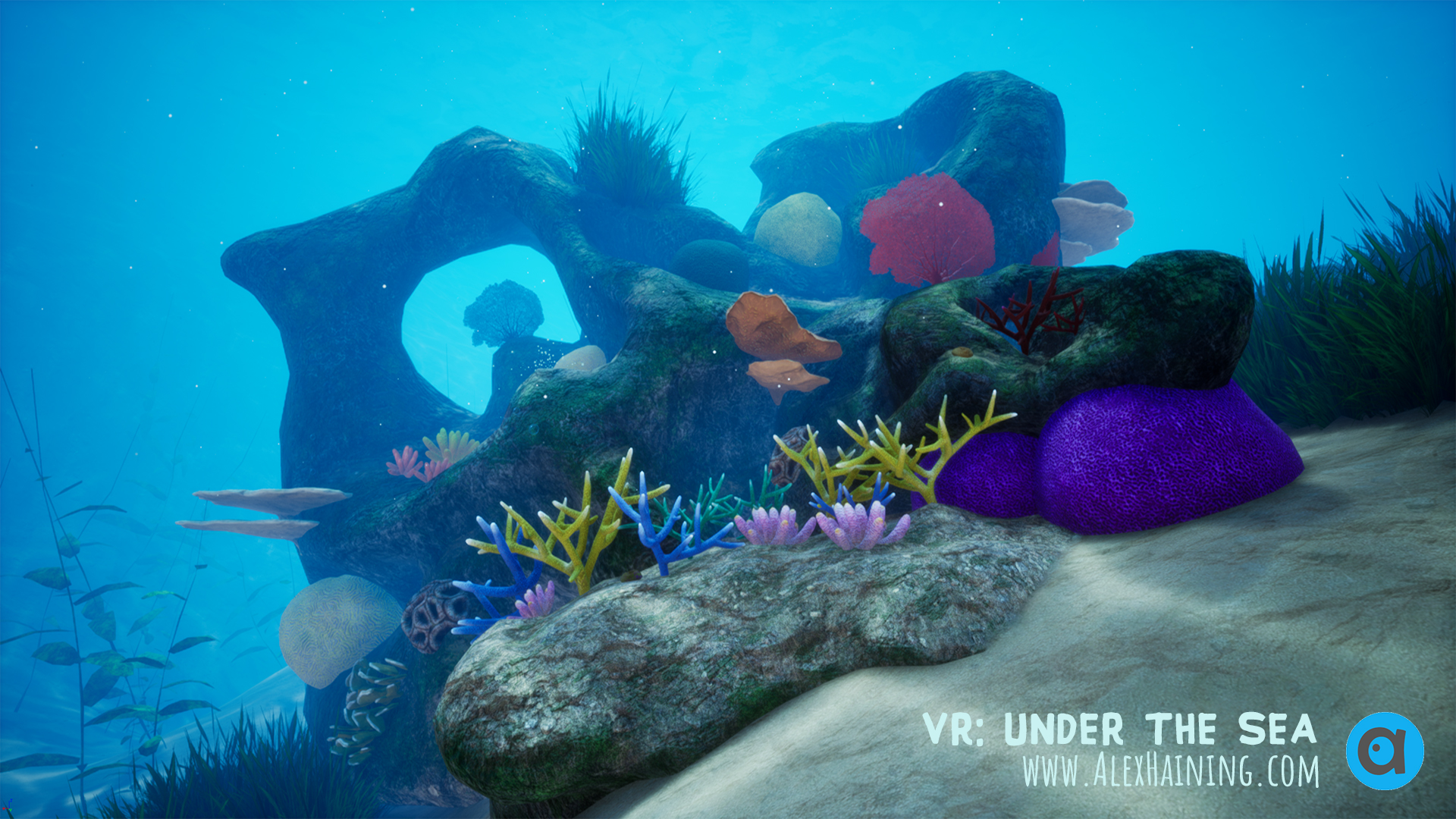
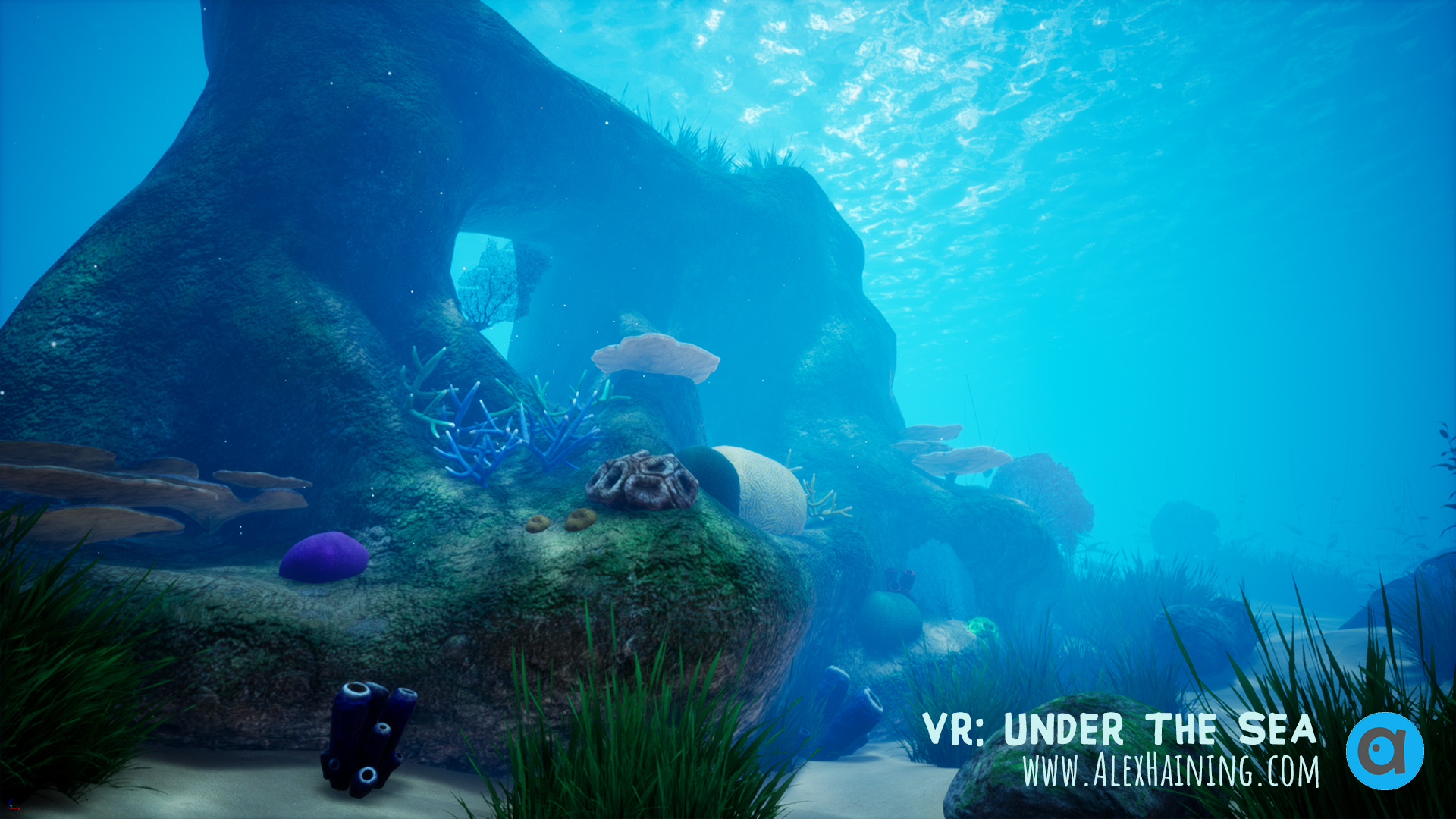
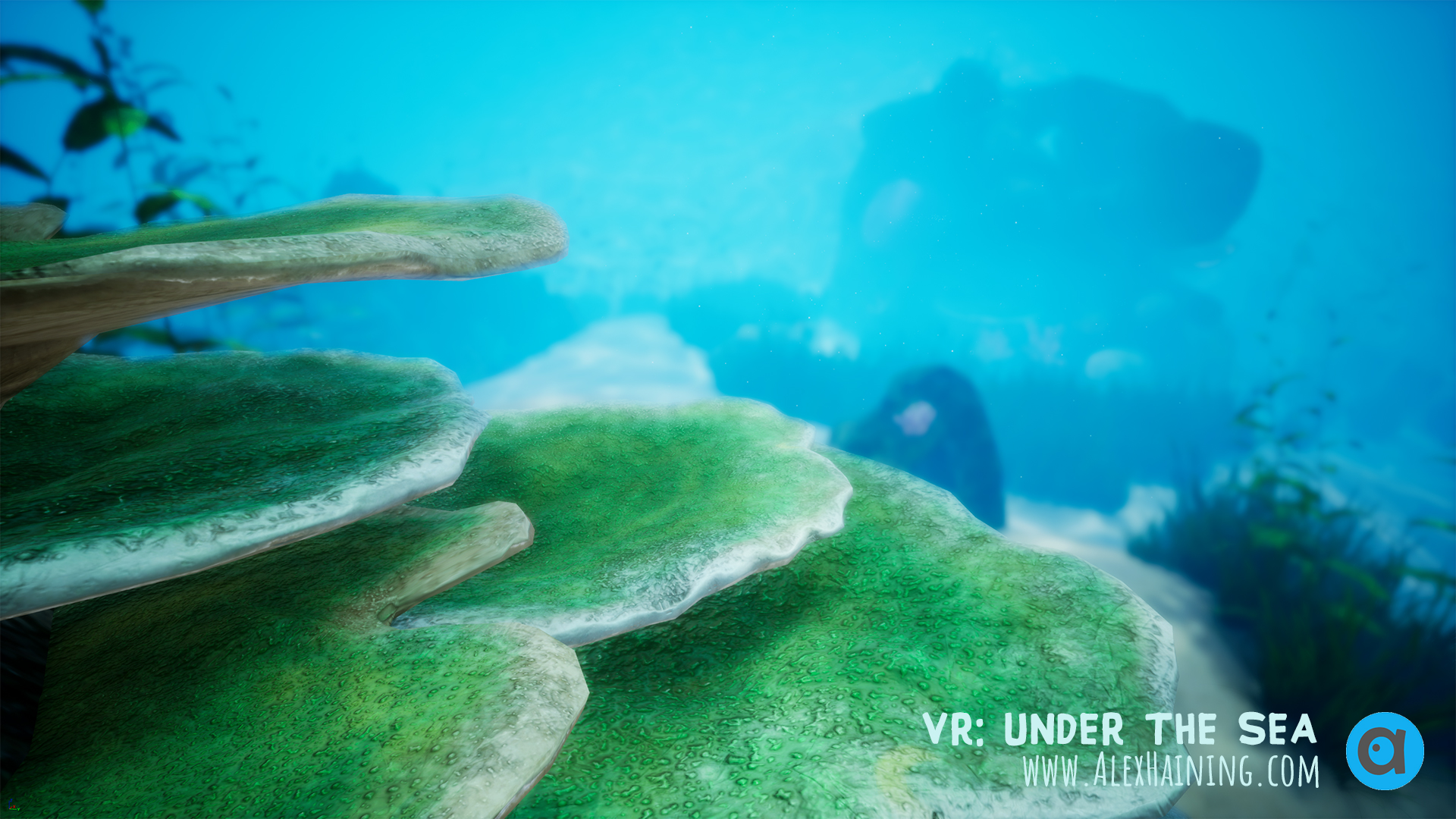
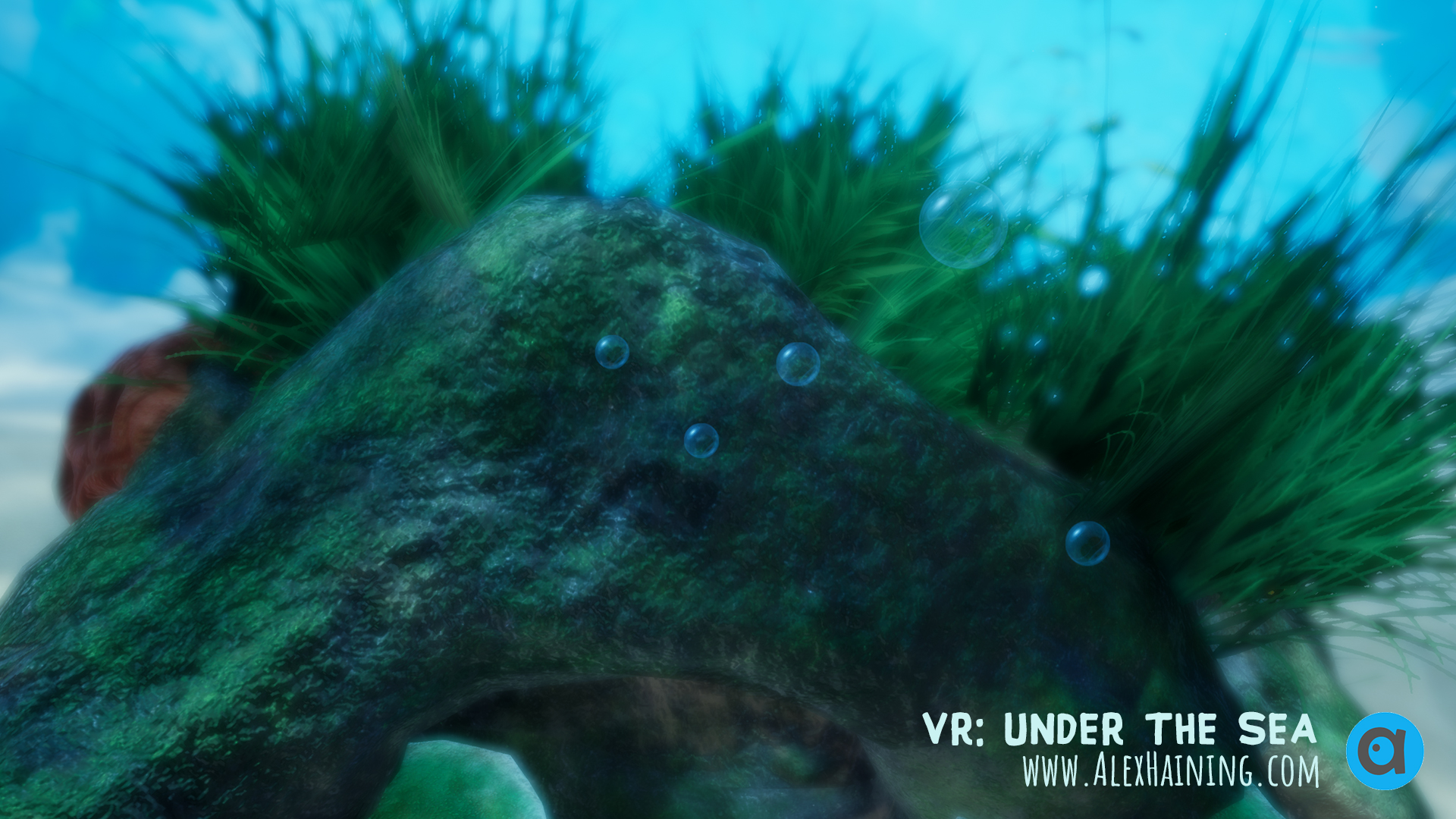
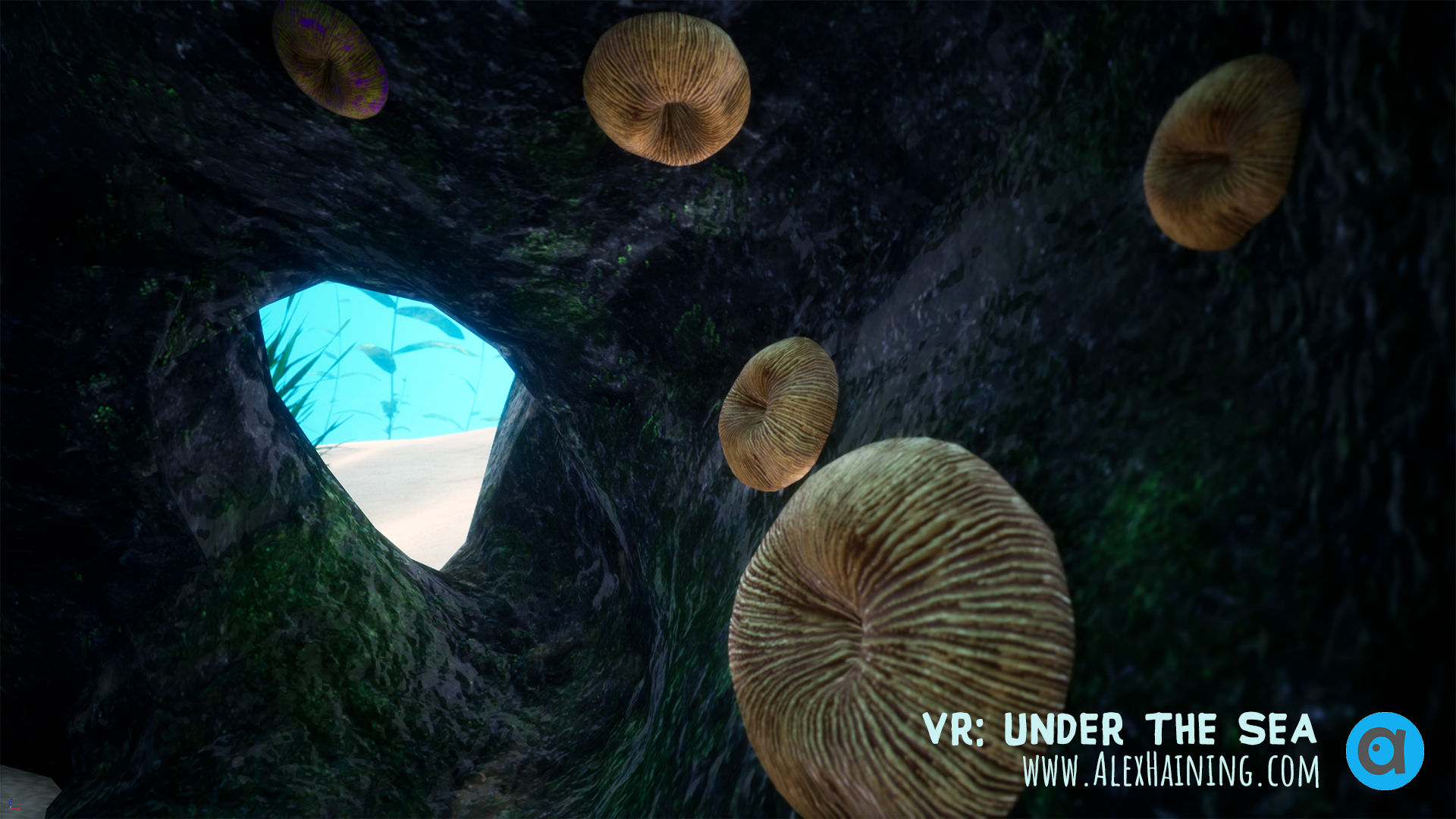
Going Forward?
How can you invoke change in a person? I'm not saying that not everyone has the motivation to take action. I think if that person was to be more knowledgeable in that field then they will naturally have an interest in that subject alone. During my research when I had participants (over 100, of all ages) I found that the older the users were they resisted change and weren't open to action. The younger the user, the more inspired they were, so perhaps its the next generation that will save the reef?
When analysing data to measure the benefits of visual learning compared to traditional methods of learning, I found that storytelling and user experience is a more powerful tool than what our current education systems hold. To make the user the heart of the story.
So.... going forward into the future, I propose three learning encounters:
- The whole experience needs to be conveyed through a narration that interacts with the marine coral environment. This is the first encounter with learning.
- Secondly, the user will be able to explore through their own will and experience first-hand of the situation, which will deepen the users learning further.
- The third is to acknowledge that the user is a key component to the wider context which is stopping global warming.
The 3rd step is most important as its how do we invoke change? Well, maybe we invoke change empathetically. Only you can make the change to save the world. Using Virtual Reality to save Reality.
